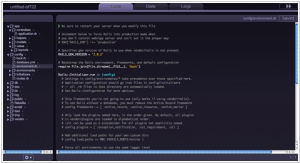Heroku vs Salesforce Lightning Platform
August 19, 2023 | Author: Michael Stromann
2
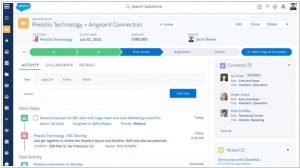
Salesforce Lightning Platform is the proven cloud platform to automate and extend your business and deliver the social enterprise. Salesforce Lightning Platform is an extremely powerful, scalable and secure cloud platform, delivering a complete technology stack covering the ground from database and security to workflow and user interface. Build the social, mobile apps you need to power your Social Enterprise.
Heroku and Salesforce Lightning Platform are both cloud-based platforms, but they serve different purposes and target different audiences. Heroku is a platform-as-a-service (PaaS) solution that focuses on simplifying the deployment and management of web applications. It offers a streamlined development experience, automated scaling, and a wide range of integrations with popular programming languages and frameworks. Heroku is popular among developers and small to medium-sized businesses looking for a platform to host and deploy their applications without worrying about infrastructure management. Salesforce Lightning Platform, on the other hand, is a powerful platform that provides a comprehensive set of tools for building enterprise-level applications, particularly for customer relationship management (CRM). It offers a low-code development environment, extensive customization capabilities, and seamless integration with Salesforce's suite of business applications. Salesforce Lightning Platform is widely used by large enterprises and organizations looking to develop and deploy complex, highly scalable applications with advanced CRM functionality.
See also: Top 10 Public Cloud Platforms
See also: Top 10 Public Cloud Platforms
Heroku vs Salesforce Lightning Platform in our news:
2015. Heroku launches application development platform for Enterprise
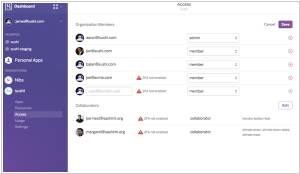
Heroku, the application development and hosting platform owned by Salesforce, has introduced a new offering known as Heroku Enterprise. This product line specifically targets large companies aiming to develop modern applications similar to those found in startups, while also providing the security features and access control often sought by enterprises. Essentially, Heroku Enterprise claims to offer the best of both worlds by enabling large enterprises to create agile-developed applications utilizing cutting-edge technologies like containers and new database services, all while adhering to the stringent governance requirements of the enterprise environment. It's an ambitious goal, and if Heroku successfully accomplishes it, they deserve commendation. With Heroku Enterprise, organizations can now effectively monitor all their developers, applications, and resources through a unified interface, streamlining their management processes.
2014. Salesforce connects Heroku to its cloud
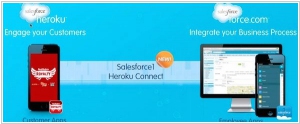
After acquiring the Heroku cloud application platform in 2010, Salesforce has finally established a connection between Heroku and Force.com through the introduction of the Heroku Connect tool. Although Heroku and Force.com are built on different development systems with distinct programming languages, Salesforce has successfully established a functional bi-directional link between them. This connection eliminates the need for extensive recoding, which can be both expensive and time-consuming, allowing Salesforce customers to effortlessly connect their Heroku apps to the Salesforce ecosystem. Salesforce recognizes the importance of showcasing tools like Heroku Connect to attract developers and assure them that Force.com seamlessly integrates with popular web toolkits like Node.js, Ruby on Rails, and Java.
2014. Salesforce ahead of Microsoft and Google on the Enterprise PaaS market
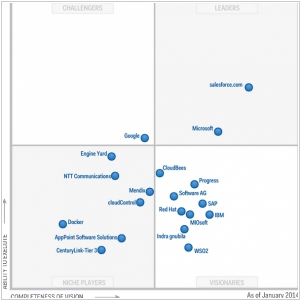
Gartner, an analytical company, has recently released the latest Magic Quadrant for aPaaS (Application Platform as a Service) providers. What exactly is aPaaS? It refers to the PaaS (Platform as a Service) platforms specifically designed for enterprises. These platforms offer cloud services tailored for building and running business applications, excluding games and social-oriented applications. The top spot in this market, with a significant lead, is held by Salesforce and its platforms Force.com (now known as Salesforce1 Platform) and Heroku. Microsoft secures the second position with its Windows Azure platform, while Google occupies the third place with its Google App Engine. The remaining participants in this market trail behind these three industry giants. It is worth noting the surprising absence of Amazon, despite equipping its platform with PaaS tools for simple hosting of business applications.
2013. Salesforce launches Private AppExchange - the own App Store for your company
Usually Salesforce unveils a bunch of new products and news at the November Dreamforce event, but this year they decided to start beforehand. Over the last couple of weeks, they have already launched the single sign-on service Salesforce Identity, announced the death of Do.com and few days ago - released Private AppExchange - the private app store that any company can create for its employees. And, in this store company can "sell" employees not just mobile apps, but also web-based services and desktop apps. It can contain both privately-built applications and third-party products, taken from the public AppExchange. At first glance, it look like a useful thing only for IT administrator who can create a list of allowed applications, provide app access to certain employees, monitor their usage and pay for all licenses from single place. But it's also suitable for employees. For example, they can write app reviews, discuss app performance with their colleagues and troll the administrator if app doesn't work as it should. ***
2012. Top 7 Dreamforce stories
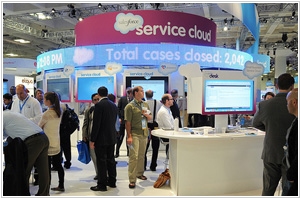
At the Dreamforce 12 conference Salesforce presented a lot of new products, but the problem is that most of these new products either had been already presented at the conference last year, or will become live to next year's conference. So, we'll just briefly go over the main ones: ***
2010. Force.com 2 - already 5 PaaS platfroms
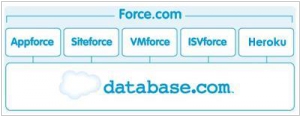
At the Dreamforce conference, Salesforce demonstrated one more time that now it's not so interested in CRM (it was mainly a subject for jokes) as in cloud platforms. Following the release of SaaS database Database.com, the company introduced another big Force.com feature - Heroku - the PaaS startup that Salesforce has recently acquired for $ 212 million. Heroku - is a cloud platform for developing and hosting Ruby-applications (Ruby - is a popular framework for developing Web apps, created by 37Signals). Heroku became one of the five PaaS-services included in the new version Force.com 2. And the new structure of the Force.com platform now looks like this: ***
2010. VMForce.com - cloud Java platform by Salesforce and VMWare
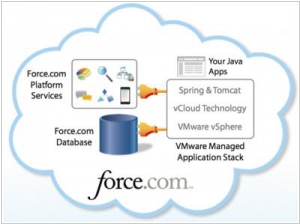
Salesforce and Google are becoming less friends but more rivals. Following the start of the cold war between ChatterExchange and Google Apps Marketplace, the companies will soon compete on the cloud platforms market. Today, Salesforce and VMWare introduced the joint product - VMForce.com - the cloud platform for Java applications, which will compete with Google App Engine. Moreover, compared to VMForce.com, GAE would look like a toy. VMForce.com (theoretically) is the ideal solution for companies using (or developing) Java-applications. On the one hand it's the Force.com's infrastructure, which provides reliable, secure and scalable hosting, database, authentication, interface builder (Visualforce), business process designer, mobile access, integrated collaboration system (Chatter). On the other hand - it's the VMWare's ecosystem for Java applications: open-source Java Springs Framework and the runtime platform vCloud. ***
2009. Salesforce launched Sites and free Force.com
Salesforce has introduced a new capability called Force.com Sites, enabling companies to develop and operate their online applications on the Salesforce.com cloud computing platform for both internal and public use. This feature allows companies to build databases with customized privacy settings, create public sites using various programming languages such as HTML, JavaScript, Flex, and CSS, access analytics, register domains, and more. The introduction of Force.com Sites reflects Salesforce's aim to expand its cloud offering, enabling hybrid applications that cater to both internal enterprise customers and external users. Additionally, Salesforce has announced a free edition of Force.com, providing small businesses and entrepreneurs with a cost-effective way to utilize Salesforce's platform.
2007. Salesforce.com extends its application platform with Force.com
Salesforce.com is set to unveil an expansion to its web-based developer platform at the upcoming Dreamforce developer conference in San Francisco. The company will introduce Force.com, a collection of tools and hosted services for building web applications, positioning itself as a competitor to traditional offline development tools. Additionally, they will present Visualforce, a service that enables developers to create customized application user interfaces. Attendees of the conference will have access to a developer preview of Visualforce. This introduction of a user interface service is significant as it enhances Salesforce.com's hosted development platform, making it a more viable option for IT managers and chief information officers seeking alternatives to Java or .Net. According to Adam Gross, Vice President of Developer Marketing at Salesforce.com, the user interface layer expands the reach of their applications to new users and devices, appealing to a different audience compared to their typical sales-focused clientele. The technology preview of Visualforce will be available in the fourth quarter of this year for those unable to attend the Dreamforce conference.

